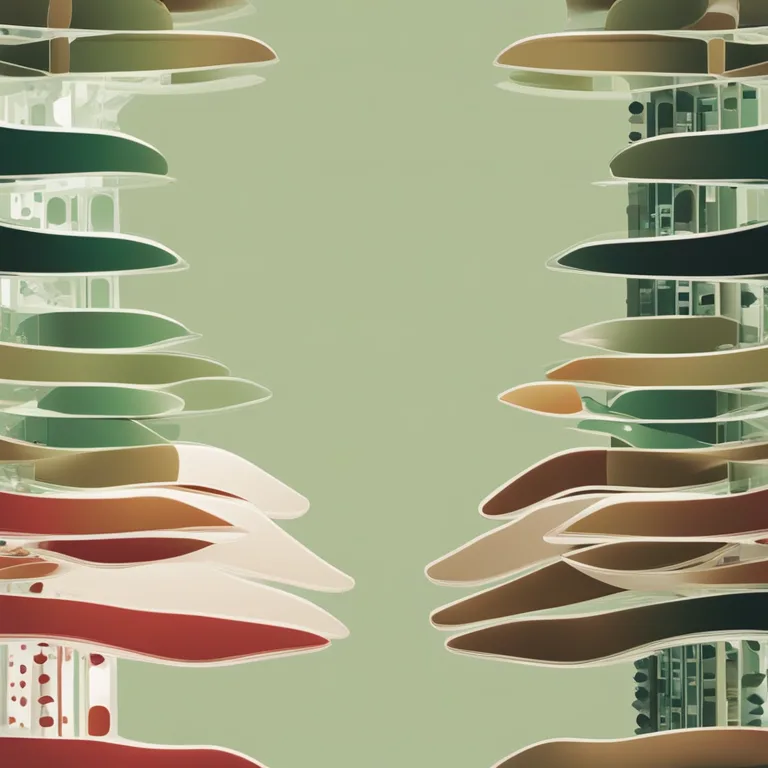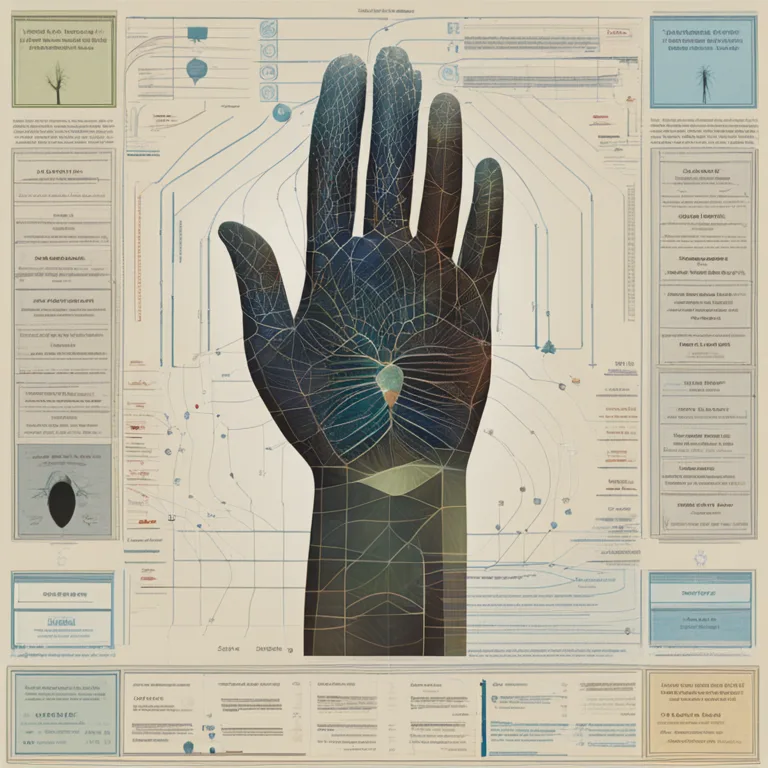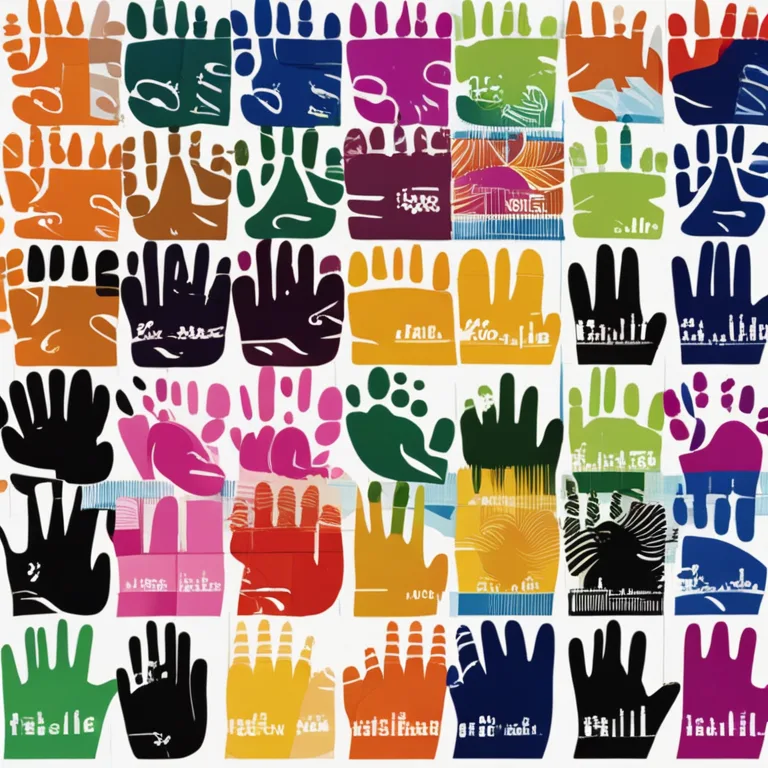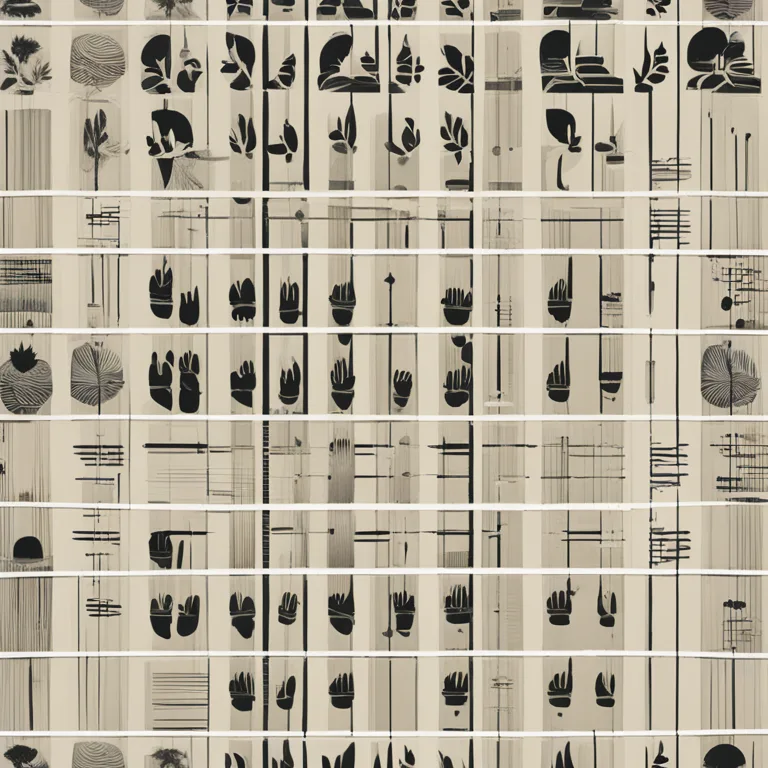
Are Palm Lines Genetic? A Deep Dive
Exploring the genetic roots of palmistry, this article examines if and how palm lines are passed down through generations.
article by Nora Pennington
Palmistry: A Brief Overview
Palmistry, or chiromancy, is an ancient practice that involves reading one's palms to predict their future and decipher their personality traits. For centuries, enthusiasts and skeptics alike have debated the credibility and origins of the lines on our palms. As we venture forward into 2024, palmistry remains a subject of fascination, with modern science occasionally crossing paths with this mystical tradition. The question of whether palm lines are hereditary sparks a blend of scientific inquiry and mystical speculation.

Understanding Hereditary Traits
To discuss the heredity of palm lines, one must first understand what we mean by 'hereditary.' Genetic traits are passed down from parents to their offspring through DNA. These traits can include physical characteristics such as eye color, hair type, and, intriguingly, certain aspects of hand morphology. However, the intricate details of what exactly is inherited through our genes are still being unraveled by researchers, especially as new genetic discoveries are made each year.

Scientific Evidence on Palm Line Heredity
Studies in dermatoglyphics—the science of fingerprint and skin pattern analysis—suggest that while fingerprints are highly heritable, palm lines may not follow as strictly genetic a pattern. The main lines on our palms, namely the heart, head, and life lines, form during fetal development and are influenced by genetic factors. However, environmental conditions in the womb also play a significant role in the final pattern. Thus, while there is a genetic component to the development of palm lines, it's not solely dependent on heredity.

Examining Family Palm Line Patterns
Anecdotal evidence suggests that family members may exhibit similar palm line characteristics, which can lead to the assumption that these features are inherited. Many individuals have noticed resemblances in palm lines among relatives, but scientific validation of these observations is limited. It's also essential to consider the possibility of coincidence and the subjective nature of comparing such lines without rigorous analysis.

Fate Lines: Genetic or Environmental?
Among the various lines that interested parties examine, the fate line—also known as the Saturn line—raises particularly interesting questions. This line is associated with one's life path, including career and success. Contradictory to popular belief, a clear genetic linkage to the presence or absence of the fate line has not been established. As palmistry intersects with genetics, the analysis of how much of our fate is written in our genes vs. our palms continues to intrigue.
Modern Palmistry and Genetic Research
As we progress beyond 2024, the integration of genetic research into the conversation about palm lines is anticipated. Advances in genomics may one day provide more concrete answers to questions surrounding heritability and morphogenetics—the study of the formation of biological structures. Current genetic tools and future innovations hold the potential to delve deeper into the enigmas posed by palmistry, bridging the gap between science and spirituality.
Published: 1/3/2024
Modified: 1/3/2024
More predictions
Come back here soon to learn more about yourself and your future


The Mystique of Multiple Marriage Lines in Palmistry
Delve into the significance of having two marriage lines on the palm and what it may reveal about your love life.


The Significance of Palmistry Mounts
Delve into the mystical landscape of your hands with insights on palmistry mounts, revealing the connection between our palms and personality traits.


The Palmistry Guide: Your Hand's Roadmap to Life
Discover the fascinating world of palmistry and learn to read the hidden map etched in your hands with our in-depth guide to palm lines and their meanings.